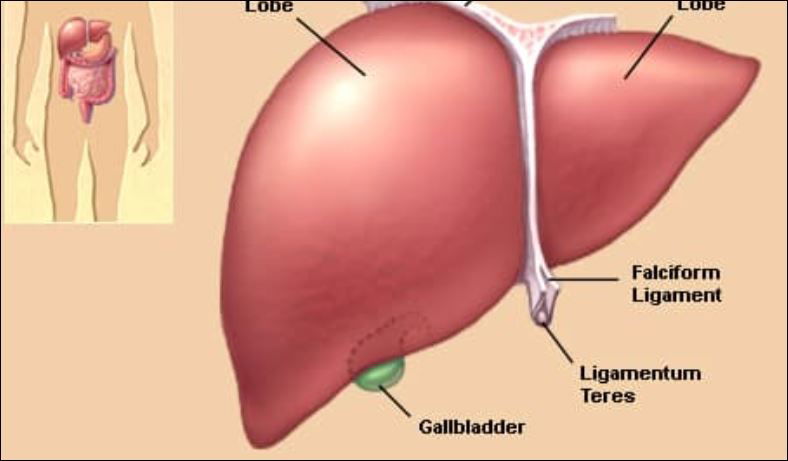Liver Test

Question 1. What is Liver Function Test?
Liver Function Test or LFT is a test used to assess health of liver. Routinely LFT is assessed by measuring proteins (total protein, albumin & globulin), transaminase enzymes (AST & ALT), gamma Glutamic acid transferase (GGT), alkaline phosphatases (ALP), conjugated and unconjugated bilirubins, from a single sample of blood.
These tests are powerful enough to detect presence of liver disease including hepatitis (liver infection) or obstruction (gall stones or cancer). Liver is one of the largest solid organs in the body. It plays a number of important functions in the body. Maintaining normal level of function of liver is very important in health and disease. Liver is a storage organ for glucose and coagulation factors, and plays central role in making toxins harmless. It is involved in metabolizing medication to active or inactive products and metabolizing proteins (urea) and aiding digestion of food through bile production. Liver damage occurs very easily due to its important role in detoxifying various toxins including drugs that we take routinely.
Question 2. When should I suspect if I have liver disease?
You should have your liver tests performed every time you are very ill and given prescription medication as some medications, particularly antibiotics. Some medications are unsafe and require dose adjustment or change of medications to avoid worsening of pre-existing liver disease.
All patients with the following should have liver function test performed routinely:
Abdominal pain (right –side, below rib cage)
Jaundice or Yellow skin and eyes
Weight loss
Nausea and vomiting
Skin itchiness
Abdominal swelling
Leg swelling
malnutrition
Pregnancy and vomiting
Diabetes mellitus
Intravenous injections and antibiotics
Easy skin Bruising
Unwell for no apparent reason
Dark Urine
Long term alcohol Use
Systemic infections: Malaria, HIV & typhoid
Before starting strong medications such as antibiotics, diabetes drugs and cholesterol tablets
Question 3. Is there any pitfall to the tests?
The tests give a fairly good indication of presence of liver damage or hepatitis. However, normal liver tests can occasionally still be seen in the presences of early liver cancer, fatty liver and cirrhosis.
Question 4. How is the test performed?
A small blood sample of about 5-10mls is taken. No special preparation is required. No further blood sample is required as this can be also used to test for other basic chemistry tests including kidney, pancreas, diabetes, gout, calcium, cholesterol and cancer blood tests.
Question 5. How long before the results available?
The test is very simple and takes only few minutes. It can take 1-2hours depending on laboratory workload. You may return to your doctor on the next appointment day to discuss the results. Patient or doctor is usually contacted for urgent results. All reports are kept confidential and only accessed by patient or his/her doctor.
Question 6. What does the test report mean?
The results are reported as normal or abnormal. If abnormal you will be advised and referred appropriately to your doctor or specialist. From your results, your doctor is able determine if a disease process is destroying your liver (hepatitis) or causing obstruction to bile flow (obstructive jaundice) for gall stones or cancer.
Question 7. What other tests are available for liver disease?
In some cases, ultrasound sound scan may be requested depending on your initial blood test results and complaints. For example, if there is any suspicion of cancer or blocked ducts due to gall stones further ultrasound scanning may be requested. Depending on your complaints and the initial tests findings, further tests such as coagulation tests, antibody studies, hepatitis screen, and liver biopsy may be ordered.
Question 8. What is the Treatment?
Treatment depends on cause of your liver disease. Simple advice include maintain good fluid balance and healthy eating and regular LFT especially if you are taking medications that is metabolised or excreted by liver particularly antibiotics. AVOID Panadol or alcohol if you have liver disease.
Question 9. Does liver disease always show up in blood tests?
Liver function tests can be normal at many stages of liver disease. A blood test may also look for signs of abnormal blood clotting, which can indicate significant liver damage.


